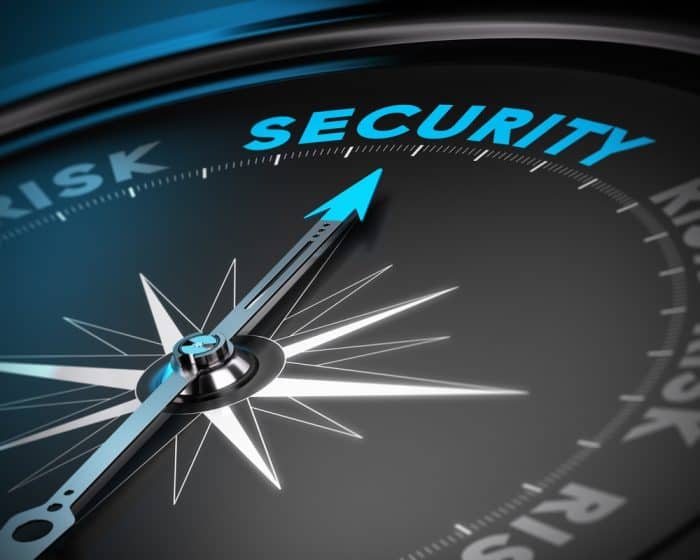Website Security
Security has never been more important than it is now.
From your one page simplest of all websites all the way to websites from largest organisations.
Websites are constantly being hacked and destroyed.
There is much that can be done to seal up the cracks in your website.
We are predominately covering the security of WordPress sites but there are security tips for all website Administrators.

Types of Security Your Website Needs
Firstly, some preliminary ideas
There’s Always a Risk Your website will be hacked. Your website can never be 100% secure.
We have all seen the movies where they say, “No safe is impregnable.”
It is the same with websites. There can be many factors that increases your risk of being hacked.
Hackers are always trying new things and discovering new vulnerabilities to exploit.
All aspects of the online world change quickly and the same is true of your security needs.
Good Security is Risk Minimization.
If anybody tries to sell you a 100% secure solution, they’re scamming you. Remember no safe is impregnable.
You’ll never be completely safe, but there’s a lot you can do to minimize your risk.
Don’t Blame WordPress. Some who don’t know any better say WordPress isn’t secure. That’s not necessarily true—it depends on how you set up and use WordPress. If you’re not keeping it updated or following bad practices, then no, it’s not secure.
The reality is that 34% of the world’s websites are using WordPress, which makes it a huge target.
Do you update the anti-Virus software on your PC?
You need to be smart. Keep themes plugins including Security Software updated.
Follow the best practices:-
- Install Software that will lock your site down.
- Poor passwords?
- Is your username “Admin?”
A great deal of security issues has little to do with WordPress and more to do with server vulnerabilities, cross-contamination. Poor decisions can undermine your site, and that’s true whether you’re using WordPress or any other solution.
Don’t blame your security woes on WordPress.

Usability vs. Security
There’s a fine balance between security and usability. Sometimes locking down your site makes it secure, but it’s hard to use. Sometimes making your site easier to use makes it less secure. You’ll have to find the balance.
3 Types of Security Your Website Needs
- Protection
- Detection
- Restoration – Back ups
If you want to protect your site, you need to do all Three
1. Protection
– First and foremost you need to lock down your site and keep it safe. Installing software that limits the number of attempts of logging in to your site. Lock them out – This can stop attacks before they start.
2. Detection
No matter how good your protection is it is possible for your site to be hacked.
Know when an attack is happening. The attack won’t always be a full-frontal assault that makes it painfully obvious your site has been hacked. Sometimes sneaky bots will put hidden code into your site. It’s no good to have all kinds of protection but then not know when some malicious virus found a weak spot and broke through. Malicious bots and hackers may have already infiltrated your site.
You’ll never know without detection.
Recovery
Have a plan to get your site up and running again after it’s been knocked down. The best protection and detection strategies can still be foiled and it is wise to be prepared.
- Do not worry about worse case scenarios, prepare for them.
- A little preparation will have you covered.
- A good backup is necessary.
There is various software which can be installed to create back-ups automatically. Contact SME Design.
Keep your site up to date.
One of the biggest security vulnerabilities in WordPress is old software.
• WordPress is updated often.
• Plug ins are updated often – keeping ahead of malware.
• Whenever there’s a new security issue – update immediately.
• Keep themes and plugins up to date—potential security issues.
• Do not put off updates
• Plugins that are deactivated can still be a threat. If the plug in is no longer required delete it.
Strong Passwords are Essential
Security is only as good as your password.
It makes sense – a simple password, you’ve got a simple site to hack. You need to use strong passwords.
Good passwords should have numbers, capitals, special characters (@, #, *, etc.) and be long and unique. The WordPress password can even include spaces and be a passphrase. Don’t use the same password in multiple places. Yes, remembering different passwords for different sites is tough, but a hacked site is worse.
Manage Users
The strong password is useless if another admin has a weak one. You need to manage your users. Not everybody needs admin access. The more people with admin access, the more chances to hack your site. Make sure you’re only giving admin access to the people who truly need it. And make sure those few admins are following good security practices. Remember to update or remove users when you have staff transitions.
And remember never use the username admin or administrator
Back Up The Site
If anything, ever goes wrong with your site, it is essential it has been backed up so it can be restored quickly.
Create a backup plan.
In order for backup to work, it needs to be complete and automatic. Backing up the database isn’t enough. Backing up just your database will preserve your content, but the entire website would need to be rebuilt, including the theme tweaks and plugin settings.
If the backup isn’t automatic, you’ll forget about it.
Get a powerful backup tool, such as to keep your site safely backed up and ready to be restored.
